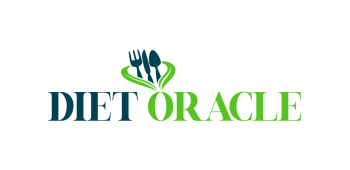Embarking on a fitness journey requires more than just dedication to physical activity; it also necessitates a keen focus on exercise nutrition. What you consume before and after a workout is crucial for fueling your exercise and aiding recovery. This guide delves into the ideal foods to eat before and after workouts, ensuring that your body gets the right nutrients at the right time for optimal performance and recovery.
Pre-workout nutrition: fueling your exercise
The primary goal of pre-workout nutrition is to provide your body with the necessary energy and support for your upcoming activity. It’s about finding the right balance that gives you energy without causing discomfort during exercise.
1. Carbohydrates
– role: carbs are the main energy source for your muscles. Consuming carbs before workouts can improve performance and delay fatigue.
– food suggestions: whole grain bread, oatmeal, fruit, or yogurt.
– timing: larger meals can be eaten 3-4 hours before a workout, while small snacks are best consumed 30-60 minutes prior.
2. Protein
– role: protein before exercise can increase muscle protein synthesis.
– food suggestions: greek yogurt, a slice of turkey, a hard-boiled egg, or a glass of milk.
– timing: can be included in your meal or snack 1-3 hours before your workout.
3. Hydration
– importance: adequate hydration is essential for peak performance.
– tip: drink water 2-3 hours before exercise and a small glass 20-30 minutes before starting.
Post-workout nutrition: aiding recovery
After exercising, the focus shifts to replenishing energy stores, repairing muscle tissues, and rehydrating the body.
1. Protein
– role: essential for muscle repair and growth.
– food suggestions: chicken, fish, tofu, or a protein shake.
– timing: ideally within 45 minutes after exercise, but the anabolic window can extend up to 2 hours post-workout.
2. Carbohydrates
– role: replenish muscle glycogen stores depleted during exercise.
– food suggestions: whole grain rice, quinoa, fruits, or starchy vegetables.
– timing: should be consumed within 2 hours post-workout.
3. Hydration
– importance: replace fluid lost through sweat.
– tip: continue to drink water and consider a drink with electrolytes if the workout was particularly intense or long.
4. Healthy fats
– role: important for overall health, but not necessarily for immediate post-workout recovery.
– food suggestions: avocado, nuts, and seeds.
– timing: can be included in your post-workout meal but not required immediately after exercise.
Additional tips
– individual needs: tailor your pre- and post-workout meals to your specific needs, workout intensity, and duration.
– listen to your body: some people may feel better eating very little before a workout, while others may need more sustenance.
– quality matters: focus on whole, unprocessed foods for the best nutritional value.
– consistency: regular, balanced meals throughout the day contribute to overall performance and recovery.
Conclusion
Balancing your nutrition before and after workouts is essential for maximizing your fitness efforts. Properly fueling your body will not only optimize your performance but also enhance your recovery process. Remember, everyone’s body responds differently, so it’s important to listen to your body and adjust your nutrition plan as needed.

